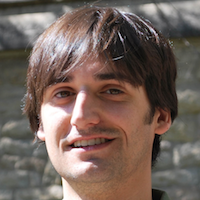
It was a few months into my simulation fellowship and I had been devoting a lot of my time to teaching at the medical school. I loved it. I find few things as fun as teaching students who are super motivated to learn. That got me thinking about why learning isn’t always that way. What is it about certain settings that foster a student’s passion to learn while others, that may be presenting the exact same content, cause the same group of students to grumble and disengage?
One of my mentors sat me down and said “If you’re going to be spending this much time on something, you should find a way to study it.”
I knew that I had a question.
On a basic level I wanted to know what it was about simulation that motivated students to sign up for sessions in their spare time. More broadly, the question was about more than just simulation. What I really wanted to know was how I could replicate the excitement that I saw in the students during simulation in a classroom, a break-out room, or the emergency department.
I’d like to say that the first thing I stumbled across in looking into this question was Drive 1 [Amazon link], the New York Times Bestseller on motivation theory that was published nearly 5 years ago. Or even that I found the YouTube video by its author that has nearly 12 million hits. But no, like a good little scholar I started reading papers. It wasn’t until after I read a bunch about Self Determination Theory (SDT) by psychologists 2 and medical education researchers 3,4 that I found this entertaining and informative book on motivation theory. Having read both the literature and the book, I think Drive has something to teach us in medical education so I hope you’ll join me in reading it this month. This video provides a good overview of what it is about:
On February 14th the ALiEM Book Club post will go live for discussion on the blog/twitter and there will be a live Google Hangout. I hope that I have convinced you all that you should get this book and take part. If you are interested in participating in the live Google Hangout let me know with a comment below.
Disclaimer: Neither I nor this website have any affiliations, financial or otherwise, with the book or Amazon.com.
Author information
The post ALiEM Bookclub Promo: Drive – The Surprising Truth About What Motivates Us appeared first on ALiEM.

